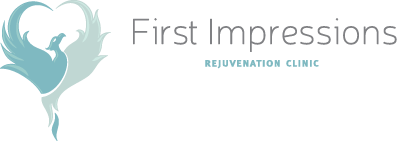Youthful skin is often characterized by a bright, firm, and smooth appearance. As we age, our skin changes, and our bodies slow down the production of essential proteins. This, combined with environmental factors, can make our skin sag, become loose, produce fine lines and wrinkles, and even change in pigment. Even though growing older is a natural process, you can still have radiant and youthful skin at any age.
The cornerstone of youthful radiance is the most abundant protein in your body: collagen. Collagen is good for keeping your tendons, ligaments, bones, muscles, and skin together. The protein fibers literally hold things in place. Collagen helps your skin glow, feel soft, and appear smooth. Collagen also helps to repair the skin after injury.
A few telltale signs of collagen loss include skin folds, loose skin, worn out cartilage, decreased flexibility in tendons and ligaments, and the appearance of wrinkles. Even though your body’s natural collagen synthesis production may decline, there are many ways you can boost and rebuild collagen for younger-looking skin.
10 Ways to Boost Collagen
Eat a Well-Balanced Diet – For optimal health, eating a well-balanced diet of fresh fruits and vegetables packed with vitamins and minerals may seem obvious. However, you can naturally boost collagen production by eating specific foods. Collagen is created by amino acids and those amino acids are created from protein. Foods that are packed with omega 3 fatty acids and protein include: salmon, sardines, cod liver oil, chia seeds, walnuts, mackerel, and tuna. On the fruit and vegetable side, try to incorporate berries, leafy greens, citrus, tropical fruits, and bell peppers. Eating these foods will give your body the protein it needs to develop more collagen naturally.
But that’s not all. There are foods you can limit or cut out completely to enhance your collagen production abilities. Sugars and carbohydrates may damage your skin’s collagen, so be mindful of your daily intake of these two. You may want to cut back on your caffeine intake as well. Caffeine can slow blood flow to the skin, causing the skin to heal slowly from injury.
To produce collagen, your body also relies on vitamin c, zinc, and copper. You can get a healthy helping of vitamin c from citrus and tropical fruits. Whole grain beans and nuts, meat, and shellfish (including oysters) can supply the zinc and copper you need.
Bone broth also comes with abundant benefits. If you simmer bones in water, collagen rises to the surface of the broth creating a nutrient-dense, collagen-boosting liquid. You can use beef, chicken, or fish bones to create your own broth.
Protect Your Skin with Sunscreen – A surefire way to expedite your skin’s aging process is to increase your sun exposure with limited protection. Just two hours of sunlight in two days can fire up our collagen degrading enzymes. Yikes! Choose a broad-spectrum SPF of 30 or above and apply generously throughout the day. Limit UV exposure by staying in shady areas, wearing protective clothing such as long sleeves and a hat, and avoiding the sun during peak UV hours (typically late morning to mid-afternoon).
Remember, sunscreen is not just for your face. You will want to apply it on your neck, below your chin, your arms, and your hands as well. Make sunscreen a part of your daily routine to boost collagen production.
Hook Your Skin Up with Hyaluronic Acid – Hyaluronic acid (HA) is a widely popular component of skincare serums, creams, and treatments. It is known for strengthening your skin’s elasticity. This powerful anti-aging ingredient also speeds up recovery time and can relieve painful joints. It naturally occurs in your body, but as you age, you may need a boost. Collagen and hyaluronic acid go hand in hand.
Ideally, you want a gel or serum that moisturizes and locks the moisture into your skin. It is important to note that some products may list the salt form of hyaluronic acid, sodium hyaluronate as the main ingredient. This ingredient is derived from hyaluronic acid, so essentially, it does the same thing. Sodium hyaluronate is considered a synthetic form of hyaluronic acid. Certain makeup-like foundations and concealers may also contain various amounts of hyaluronic acid as well. In addition to topical application, you can increase HA through your diet by eating foods such as soy, root vegetables, and beans that are packed with amino acids.
Amp Up Your Antioxidants – To boost collagen production, you should also incorporate antioxidants into your daily nutritional routine. Antioxidants work hard to protect the skin from free radicals that can aid your existing collagen. You can find antioxidants in green tea, coffee extract, cinnamon, blueberries, pomegranate extract, and licorice extract, to name a few.
One of the more common antioxidants used for skincare is retinol. It is a vitamin A derivative that can elevate the levels of procollagen and stimulate the body’s cells. This antioxidant can expand your existing collagen’s lifespan while blocking the enzymes and free radicals that destroy collagen. Retinol is applied topically through creams and serums. You may want to talk to your skincare provider before using, as it might cause slight irritation to your skin.
Get Some Ginseng – Perhaps one of the most natural anti-aging nutrients that exist out there is ginseng. Find a delicious tea or ginseng supplement to incorporate this powerful nutrient into your diet. Research shows that ginseng not only protects the skin against UVB ray damage but also promotes the growth of collagen. Ginseng protects your existing cells, promotes the growth of new and healthy cells, and aids in beautiful and glowing skin.
Get Proactive with Peptides – Your body contains little messengers that signal your cells to increase collagen production called signal peptides. They emulate the protein sequences commonly found in collagen and elastin, increasing the production of both. Carrier peptides do exactly what they say. These peptides carry other ingredients in the skin to boost the enzymatic processes and increase the production of collagen. You can use topical creams and serums to enhance your existing peptides.
Aloe Vera Gel – Speaking of topical skin nourishment, aloe vera gel can be used for more than just treating a nasty sunburn. This plant-based product has been shown to dramatically increase collagen and hyaluronic acid production when aloe sterols are extracted. You can even take it orally in supplement form.
Red Light Therapy – When it feels like a diet, exercise, and supplements are not enough, you can explore several treatments to boost collagen production. One such treatment is red light therapy. This is a quick and safe way to increase collagen in the skin. Using low-level laser light, you can target specific areas of your skin with no side effects.
Chemical Peels – A chemical peel is a technique used to improve and smooth the texture of the skin. It is a skin-resurfacing procedure in which a chemical solution made up of acids (often naturally occurring) is applied to the skin to remove the top layers. These layers gradually peel off revealing brighter more hydrated skin underneath. A facial chemical peel also aids in the improvement of fine lines, texture, age spots as well as pigmented scars. Chemical peels can stimulate collagen production and allow the newer, brighter layers of your skin to shine through once the treatment is complete.
Microneedling – Microneedling, also known as collagen induction therapy, is a minimally invasive procedure that can minimize the signs of aging, help reduce pigmentation, refine the texture and tone of skin, and treat acne scarring. It can also be used to treat scars from trauma or surgeries as well as stretch marks.
Microneedling introduces small, micro-injuries into the skin using very tiny needles. The needles penetrate the first, outer layer of the skin. These micro-injuries signal the skin to repair itself. Microneedling results in an increased production of collagen and elastin, promoting a thicker and more even skin texture, and tone. The procedure can help your body generate overall healthier-looking skin.
Beware of Collagen-Boosting Gimmicks
Since collagen is such a sought-after protein, there are many gimmicks and products on the market that claim to enhance collagen production, when they really don’t. For example, it used to be widely believed that collagen itself could be applied topically to the skin to increase the production of youthful protein. This is false, as collagen synthesis occurs below the skin’s surface. Collagen molecules are big, and they have a difficult time penetrating the lower layers of the skin.
Make sure you read the ingredients of any supplement or skincare product you choose to use. That way you can avoid an adverse reaction to your skin (and your wallet). No skincare products are alike despite a stated ingredient, nor do they contain the same quality ingredients. Pharmaceutical-grade products have been scientifically tested, clinically trialed, analyzed for purity, and are regulated, these products are high quality and can be found in physician and nurse practitioner clinics. Cosmetic-grade products on the other hand may be made with non-pure ingredients and contain numerous filling ingredients and chemicals, offer minimal effectiveness, and don’t mean your costs are lower either. In fact, many of the highest-priced skin care products only contain cosmetic-grade ingredients just like their less expensive, over-the-counter shelf mates. If you want your products to affect real change, then you should consider changing to pharmaceutical-grade products.
Ready to Kickstart Your Collagen Production?
If you’re looking to kickstart your collagen production, consider a professional treatment such as microneedling or other injectables. You can undergo this treatment in addition to a healthy diet, a sun-safe skin care routine, and a little extra help from retinol and peptides. Even if you are curious about what else you can do to stimulate collagen production, give First Impressions Rejuvenation Clinic a call for a comprehensive consultation. Our knowledgeable practitioners would be happy to discuss your individual skincare needs, recommend treatment options, and share product information with you.
You deserve to look radiant and youthful no matter your age.
*******************
Many people presume that if they get Botox® injections, they will end up looking like a wax mannequin in a museum instead of getting results with a more natural look. But in fact, this treatment is one of the safest and most popular cosmetic treatments worldwide. Learn more when you download our FREE ebook, 10 Truth Bombs about Botox® and Fillers You’ll Be Relieved to Know.

